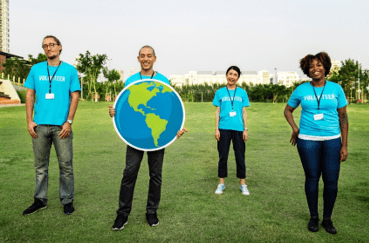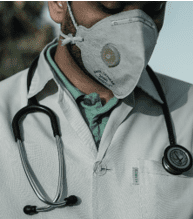What is Earth Day?
Earth Day was established in 1970 and now is celebrated worldwide as a way to draw attention to environmental issues and promote sustainability.
This year, the Earth Day organization is focusing on climate action. Their efforts have included education on environmental justice and its impact on the fight against climate change.
Visit www.EARTHDAY.ORG to learn more.

What is Environmental Justice?
Environmental Justice is a very important part of environmental protection, and must not be ignored as we work together toward a sustainable future for our planet
EJA defines Environmental Justice as:
1. Equal protection from environmental negatives
2. Equal access to environmental positives, and
3. Equal opportunity to participate in environmental decision-making
What does Environmental Justice have to do with climate change?
Climate change disproportionately affects the most vulnerable populations. In the US, this group includes people of color, immigrants, and low-income communities. Worldwide, the heaviest impacts are faced by poor people living in developing countries. The impacts of environmental injustice threaten these communities’ physical and mental health by limiting access to clean air and water, healthy food, and safe shelter. These communities disproportionately bear the consequences, despite being less responsible for contributing to the problems.
Some examples of how climate change disproportionately impacts the marginalized and disadvantaged include:
>> Hurricane Maria, in 2017, disproportionately destroyed poor communities in Puerto Rico. While the financially secure were able to relocate and rebuild, the island’s most vulnerable communities are still reeling from this disaster
>> People living in poor neighborhoods are more likely to face air pollution due to their proximity to industrial sites, close living quarters, and lack of access to resources like air purifiers. What’s more, the Global Alliance on Health and Pollution’s 2017 report found that high-income countries are responsible for more than 85% of the world’s air pollution, although more than 90% of all pollution-related deaths occur in low- and middle-income countries”
>> The livelihoods of many small farmers, fishermen, and other subsistence-based workers are threatened disproportionately by climate changes. As sea levels rise, droughts become more frequent, and temperatures soar, the resulting food scarcity will threaten the poorest people first.
What Does Environmental Justice Alliance do to help?
We provide complimentary environmental services for marginalized and disadvantaged communities, such as tree maintenance, removal of hazardous trees, stormwater management, and beautification.

Did you know?
A disproportionately high number of hazardous and dead trees can be found in low-income areas. In these communities there is less funding available to care for street trees, remote landlords are unaware of the risks associated with these trees on their rental properties, and few homeowners can afford costly tree pruning and removal services.
We provide access to free, organic produce by planting organic community gardens in marginalized and disadvantaged communities.

Did you know?
Access to a community garden is correlated with decreased crime and violence; improved family dynamics, physical and mental health, and economic security; and increased community empowerment and participation.
We provide complimentary tree maintenance and hazardous tree removal for Heroes (including servicemembers, veterans, first responders, healthcare workers, and teachers).

Did you know?
COVID-19 is an environmental justice issue! The most vulnerable members of our communities are most likely to suffer from serious health complications due to COVID-19. It is our commitment to do what we can to support those who are on the front lines fighting for an end to the pandemic. Essential workers keep our economy going, provide services that we often take for granted, and many are members of disadvantaged and marginalized communities.
What Can You Do to Help?
1. Support BIPOC-led, grassroots organizations like Environmental Justice Alliance.
Other organizations you can support include: Good Old Lower East Side (GOLES) in NYC, Asian Pacific Environmental Network (APEN) in the Bay Area, and Environmental Transformation Movement of Flint (ETM Flint) in Michigan.
2. Seek out and amplify BIPOC voices, which are commonly silenced in discussions about climate change and sustainability
3. Demand accountability from lawmakers as environmental protection legislation is introduced in Congress
Leave a Reply